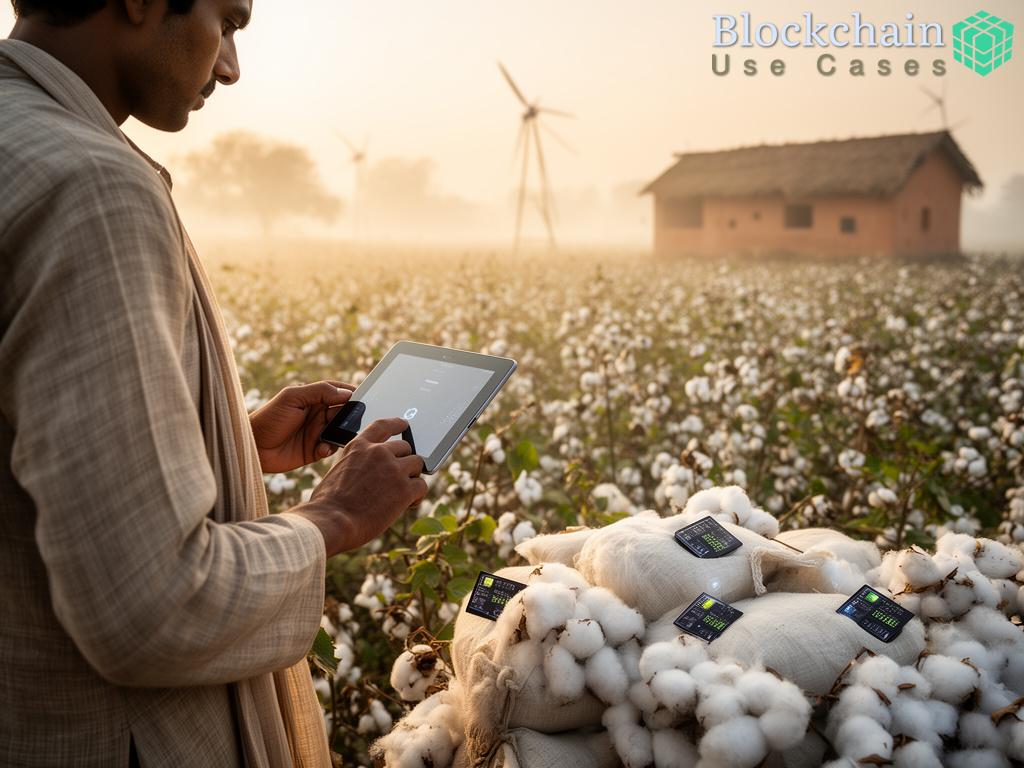Enhancing Transparency in Vendor Onboarding

Unlocking the Power of Transparency
In today’s competitive marketplace, the need for transparent processes in vendor onboarding is paramount. Companies seek to establish trust with their suppliers, ensuring that every step is clear, accountable, and verifiable. Blockchain technology provides an innovative solution to enhance transparency, allowing all parties involved to access real-time data regarding vendor credentials, compliance, and performance.
The Mechanisms of Blockchain in Vendor Onboarding
Blockchain operates as a decentralized ledger that records all transactions across a network of computers. This system eliminates the need for intermediaries, which traditionally introduce delays and potential for errors. With the implementation of blockchain, each vendor’s onboarding process can be monitored and verified by all stakeholders, promoting an environment of trust and reliability.
- Immutability: Once data is recorded on the blockchain, it cannot be altered, ensuring that all onboarding records are secure and tamper-proof.
- Real-time Access: Stakeholders can access vendor information in real-time, leading to quicker decision-making processes.
- Audit Trails: Each transaction creates a permanent record, making it easy for businesses to conduct audits and trace any discrepancies.
Comparative Benefits Over Traditional Methods
The traditional vendor onboarding processes often involve lengthy paperwork, multiple approval chains, and a significant amount of time spent verifying credentials. In contrast, blockchain technology offers streamlined operations with numerous advantages:
| Aspect | Traditional Methods | Blockchain Integration |
|---|---|---|
| Time Efficiency | Slow, manual verification processes | Fast, automated verification |
| Transparency | Limited visibility into vendor actions | Full visibility with real-time updates |
| Data Security | Vulnerable to data breaches | Secure and immutable records |
By leveraging blockchain, organizations can mitigate risks associated with vendor onboarding, foster better relationships with suppliers, and ultimately enhance operational efficiency.
Automating Compliance Checks through Smart Contracts
As businesses increasingly rely on complex supply chains, the significance of compliance cannot be overstated. Companies must ensure that their vendors adhere to industry regulations, contractual obligations, and ethical standards. Traditional compliance checks often involve labor-intensive processes that can delay onboarding and strain relationships. Smart contracts, powered by blockchain technology, present a transformative solution to automate and enhance these compliance checks, ultimately fostering a more efficient and reliable supply chain.
Smart contracts are self-executing contracts with the terms of the agreement directly written into code. When certain pre-defined conditions are met, these contracts automatically execute actions, such as approvals or payments, without requiring human intervention. This automation not only expedites compliance verification but also reduces the risk of human error, creating a more trustworthy system.
Seamless Integration with Regulatory Standards
One of the most compelling advantages of smart contracts is their ability to seamlessly integrate with regulatory standards. By embedding compliance criteria into the contract code, organizations can ensure that vendors meet necessary regulations before any transactions occur. For instance, a smart contract can be programmed to automatically reject a vendor’s onboarding request if they fail to provide the required certifications or if they do not meet specific legal requirements, thus mitigating potential risks.
Real-Time Monitoring and Reporting
Smart contracts also facilitate real-time monitoring of vendor compliance. With blockchain’s immutable nature, every transaction and compliance check is recorded, providing a transparent audit trail. This feature allows companies to continuously monitor vendor performance and compliance status without the need for extensive manual oversight. In the event of a compliance issue, stakeholders can quickly access the relevant data to address the situation promptly.
Moreover, the ability to generate automatic reports based on real-time data can significantly enhance decision-making processes. By eliminating the delays associated with traditional compliance checks, organizations can respond to issues swiftly, maintaining the integrity of their supply chain.
| Aspect | Traditional Compliance Checks | Smart Contract Automation |
|---|---|---|
| Speed | Time-consuming and manual | Instantaneous execution |
| Accuracy | Prone to human error | Consistently accurate |
| Transparency | Limited visibility | Full visibility with audit trails |
| Regulatory Updates | Manual revisions needed | Automatic updates |
In conclusion, the integration of smart contracts into supply chain onboarding and vendor management not only streamlines compliance checks but also enhances overall operational efficiency. By automating these processes, organizations can build stronger, more transparent relationships with their vendors while minimizing risk and ensuring adherence to regulations.
Improving Traceability in Supply Chain Processes
In the intricate web of modern supply chains, traceability stands as a critical pillar for ensuring product integrity and compliance. The ability to trace the journey of a product from its origin to its final destination not only enhances operational efficiency but also builds consumer trust. Blockchain technology emerges as a formidable ally in this endeavor, offering a transparent and secure framework for tracking every movement and transaction within the supply chain.
Unraveling the Complexity of Traceability
Traditional supply chains often struggle with fragmented data and lack of visibility into product movements. This opacity can lead to issues such as counterfeiting, compliance violations, and recalls, which can tarnish a brand’s reputation and incur significant financial losses. Blockchain’s decentralized nature addresses these challenges head-on, providing a unified platform where every participant in the supply chain can access real-time data.
Key Benefits of Blockchain in Traceability
The integration of blockchain into supply chain processes offers substantial advantages that enhance traceability:
- Enhanced Visibility: All stakeholders can view the entire product lifecycle, from raw materials to final delivery, ensuring that any discrepancies can be addressed immediately.
- Immutable Records: Once data is entered into the blockchain, it becomes tamper-proof, ensuring that the history of transactions is reliably recorded.
- Faster Recalls: In the event of a product recall, blockchain enables quicker identification of affected batches, minimizing potential harm to consumers and financial loss to the company.
- Consumer Trust: Providing customers with access to verifiable information about the origins and handling of products enhances brand loyalty and transparency.
Comparative Analysis: Traditional Traceability vs. Blockchain-Enabled Traceability
| Aspect | Traditional Traceability | Blockchain-Enabled Traceability |
|---|---|---|
| Data Integrity | Prone to manipulation | Immutable and secure |
| Visibility | Limited to specific stakeholders | Full visibility across the supply chain |
| Response Time | Slow and manual | Instantaneous updates |
| Consumer Access | Minimal information available | Direct access to product history |
In summary, the deployment of blockchain technology in supply chain traceability not only mitigates risks associated with product handling but also fosters a culture of transparency and reliability among all stakeholders. As organizations strive to navigate the complexities of global supply chains, embracing blockchain can be a game-changer in enhancing the traceability of their products.
Reducing Fraud Risk in Vendor Management
In an era where supply chain integrity is paramount, organizations face the daunting challenge of mitigating fraud risks in vendor management. Fraudulent activities can lead to substantial financial losses, damaged reputations, and strained relationships with trustworthy suppliers. Blockchain technology emerges as a powerful ally in combating these risks, creating a more secure and transparent vendor management process that instills confidence in all participants.
Fortifying Vendor Verification Processes
One of the most significant advantages of blockchain is its ability to enhance vendor verification processes. By leveraging a decentralized ledger, organizations can ensure that all vendor data, including credentials and compliance records, is securely recorded and easily accessible. This transparency acts as a deterrent against fraudulent claims, as any discrepancies can be quickly identified and addressed.
Immutable Records: A Shield Against Fraud
Blockchain’s inherent immutability serves as a protective barrier against fraudulent activities. Once data regarding a vendor’s performance or compliance is recorded on the blockchain, it becomes tamper-proof and permanently accessible. This characteristic not only protects against unauthorized alterations but also creates a reliable audit trail for each transaction, making it simpler to trace the origins of any irregularities.
Key Strategies for Implementing Blockchain in Fraud Prevention
Organizations looking to reduce fraud risk in vendor management can adopt several key strategies:
- Comprehensive Onboarding Processes: Utilize blockchain to create a standardized onboarding process that verifies vendor identities and validates their credentials.
- Real-Time Monitoring: Implement smart contracts that continuously monitor vendor compliance and performance, triggering alerts in case of any anomalies.
- Transparency in Transactions: Foster a culture of openness by allowing all stakeholders to view transaction histories, thus discouraging dishonest practices.
- Collaborative Networks: Create collaborative networks on the blockchain where vendors can share performance metrics and compliance information, reinforcing accountability.
By integrating these strategies, organizations can effectively leverage blockchain’s strengths to diminish fraud risks and enhance the overall reliability of their vendor management systems. As businesses continue to navigate the complexities of supply chains, adopting blockchain not only safeguards against fraud but also promotes a culture of trust and integrity.
Facilitating Real-Time Data Sharing among Stakeholders
In an increasingly interconnected world, the demand for real-time data sharing among stakeholders in supply chain management has never been more critical. As organizations strive for agility and responsiveness, blockchain technology emerges as a game-changing solution that transforms how data is shared, accessed, and utilized. By fostering transparency and trust, blockchain not only enhances collaboration but also streamlines the onboarding process for vendors, ensuring that all parties are equipped with up-to-date information.
Empowering Stakeholders Through Decentralized Access
One of the standout features of blockchain technology is its decentralized nature, which allows stakeholders to access shared data without the need for centralized control. This democratization of information significantly reduces delays associated with traditional data-sharing methods, where information is often siloed within specific departments or entities. With blockchain, each participant in the supply chain can independently verify data, leading to increased accountability and a more cohesive workflow.
Transforming Communication Dynamics
Real-time data sharing facilitated by blockchain technology revolutionizes communication dynamics among supply chain partners. Instant access to critical information such as vendor compliance status, inventory levels, and transaction histories allows stakeholders to make informed decisions swiftly. This rapid communication not only mitigates potential disruptions but also enhances overall operational efficiency.
To illustrate the transformative impact of blockchain on communication, consider the following key benefits:
- Instant Updates: Stakeholders receive immediate notifications regarding any changes or updates in vendor status or shipment tracking, enabling proactive decision-making.
- Consistent Data Accuracy: With a single source of truth, discrepancies in data are minimized, ensuring all parties operate with the same information.
- Enhanced Collaboration: By providing a transparent view of the supply chain, blockchain fosters stronger partnerships among vendors, manufacturers, and distributors.
Innovating Data-Driven Decision Making
The ability to leverage real-time data effectively reshapes decision-making processes within supply chains. Companies can swiftly analyze trends, monitor performance indicators, and respond to market fluctuations with agility. Moreover, having access to accurate and timely data reduces the risks associated with guesswork and outdated information, empowering organizations to make strategic choices that benefit their bottom line.
In conclusion, the facilitation of real-time data sharing through blockchain technology not only enhances transparency and collaboration but also transforms the landscape of supply chain onboarding and vendor management. As organizations embrace these innovations, they pave the way for a more efficient, responsive, and resilient supply chain ecosystem.





